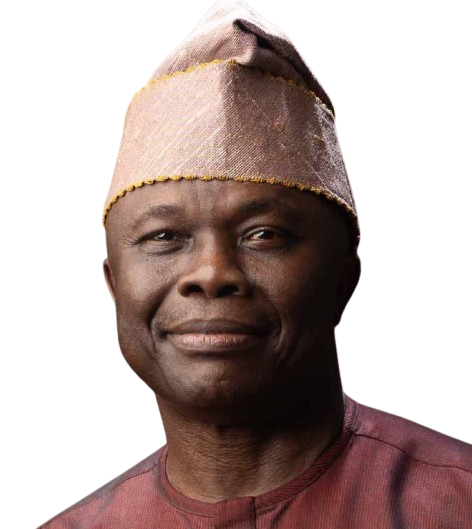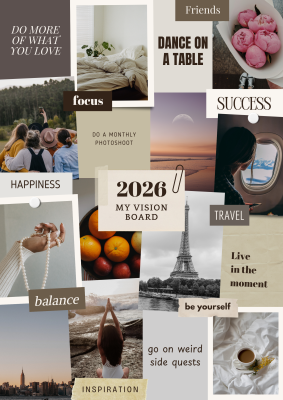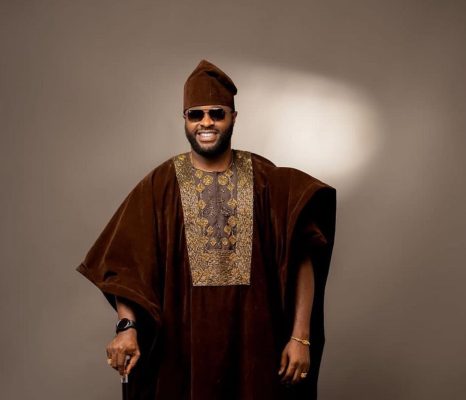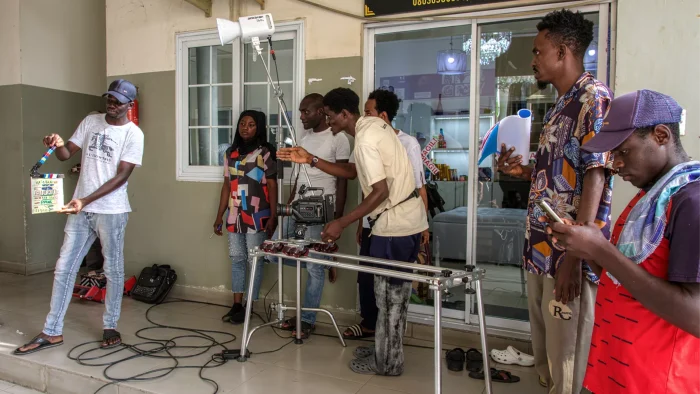- The business of storytelling: Ruth Kadiri on why Nollywood must invest in structure, not just stars
- SHOW DEM CAMP: Afrika Magik, Nollywood Nostalgia, and Conceptual Hip Hop
- TikTok Awards Sub-Saharan Africa: A celebration of a continent’s new creative power
- Edinyanga Uko & Itoro Okopide: Redefining cultural luxury one business at a time

If you have ever met Waje in person, you will remember how full of life she is. As she gets ready to unleash a new album she brings a happy energy to her photo shoot, throwing impromptu performances to every song that comes on.
Originally known as Aituaje Iruobe, her unique vocals have been around for while. She was officially introduced to the music scene with a feature on P-Square’s Do Me in 2007 and subsequently she became known for her strong vocals in many notable tunes such as M.I’s One Naira, Left For Good featuring Patoranking, Coco Baby featuring Diamond and her own signature tune, I Wish. Besides her music, Waje is also an active member of One.org, an international non-profit organisation dedicated to fighting extreme poverty and raising public awareness particularly in Africa.
Although she has only released one album – W.A.J.E in 2013, her numerous collaborations have made her a household name. She is the recipient of many awards and nominations and last year we saw Waje transform from a musician to a mentor, as she was one of the judges on the music show, The Voice Nigeria. Waje talks about the ways in which the show “validated her as an artist”, the show not only gave her the opportunity to share her musical knowledge and experience but also allowed her to prove herself as her mentee Arese won the first The Voice Nigeria competition. We look forward to watching Waje as a judge on the show in season two, which is currently filming in South Africa.
Guardian Life caught up with Waje, who, with her new album set to drop before August, seems to be opening up a new chapter in her personal life too, taking advice from her now 18-year-old daughter and taking her performance to the next level.
How was life for you as a single mum at a really young age?
I had all the challenges that any single mum at that age would have, especially because that wasn’t really the plan. For parents, they believe that there’s time for everything, I just went ahead of the scheduled time to do things that I wasn’t supposed to do at the time. I had my family support, which to me was a blessing and is still a blessing till date. So at least I count myself lucky, because there are so many other people that had the same experience and have not come out of it.
Was music always in the cards for you? Did you have any other career planned?
For me, music was always somehow part of the plan. When I was at school, I was on scholarship because I could sing, not because I was an A grade student or anything, even though say I de try. So somehow, music has also opened doors for me, I guess it was just natural. I had people in my life like Chris Madubuko, who was my mentor; he guided me to making the right decisions before music became a career.
Before my music life, my life was pretty much confused in the sense that I really didn’t know where to place myself. I had done quite a number of things, I had worked for the tourist board in Enugu and I didn’t last up to a year there.
At some point I started making chin chin with my friend, we were doing that to survive but crazy enough our chin chin was the best in Onitsha at the time. We used to sell a really small container for N600 and in two days we might finish frying 50 kilos of chin chin, just the two of us.
Tell us how you music career finally kicked off?
I was part of Dome Records, that’s Chris Madubuko’s label who discovered me. He believed in what I could do and it was through him that I met P-Square, and they featured me in Do Me. There were different events and people channelling me to the right crowd, sort of helping me be the artist that I am today.

How have you seen the Nigerian music and entertainment industry transform since you started?
A great deal has changed. I started singing ballads and the funny thing is people said, “Ah! Waje if you do this type of music in Nigeria, hunger go kill you oh!” But we somehow stuck to our guns with One Naira and all the songs that were beautiful. You look at people like Simi and Adekunle Gold, who are doing it effortlessly and they carry people along. The older crowd, the younger crowd, it just shows that Nigerians are evolving with music and we are beginning to enjoy our music more.
There was a time you would go to the club and you’d hear, “From the day that I met you girl” and everybody would be dancing but now we play 99 percent of our content and for me that is a great deal. Our music is exported now. We have grown even though there is so much more to do.
Tell us about your creative process, what’s the most important element?
My creative process is weird because I go in phases. By 2013, I had evolved into an artist who would hear a beat and freestyle and then write words to it. Now I literally just think about the song and (I have this red diary) I might not have the melody, but if the words come to me I put them down.
A good friend of mine told me the best place to write is when you’re flying. The ideas just flow into my red book, that is the phase I am in as an artist. Also creatively I’m involving other people, it is not just me anymore. I used to do it myself and I went through a phase where I had a block and I couldn’t function to the best of my capacity. Now I have an A&R [artist development executive] and songwriters like Johnny Drill, Sizzle and Aramide who is a fantastic songwriter. So the creative process has really evolved, I like to turn off the lights when I’m voicing, so I can channel my emotions correctly. I find myself doing better vocally when I know the words of the song and I’m not just reading from a book. I would have to listen to the song a couple of times at home before I voice it. So when I’m sitting in the studio and the lights are off, it now becomes me.

How did it feel being a judge at The Voice Nigeria?
That is one of the miracles of 2015, for me. It validated me as an artist with substance, because it’s not just about the music. It is no longer about my vocals, it’s me imparting knowledge to other people and being successful at it because my team won, it was as if God was saying, “Take oya, you don try.” I was excited and so happy when Arese won.
What did you learn in the process?
I learnt that even though you know something, there are no rules. There are no rules to what makes this person a better artist. You have to understand that work is work, do the best that you can do to improve yourself, but there are no rules. To me Arese isn’t the usual artist, her range is very unique, her voice is unique and it just shows that there is room for everybody.
Do you think the show set out to do what it intended to do?
I think so, because I realised that with the show, we were teaching people different things about music and the stages the contestants go through to create music because many people don’t know how hard it is. People were not only connecting to their vocal powers, they were also connecting to the work that the kids were putting in. I feel like the more documentaries we have of the process we go through making music, the more our audience will be invited into our space and have an understanding of what we are trying to achieve.
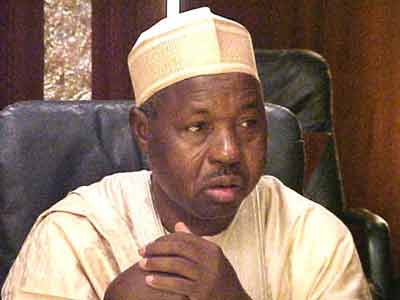
Is there any specific reason why it wasn’t shot in Nigeria?
I am not a part of the production team, so I wouldn’t be able to say, but I know it’s probably because it is more cost effective and it is a business at the end of the day. The bottom line is, are we good TV? Are we putting out great content that is proudly Nigerian? The contestants are Nigerian, the judges are Nigerian and it is for Nigerians.
We haven’t been hearing much from you on the creative side, should we be expecting any exciting projects from you?
I am working on my album and one of the reasons why I have been taking my time I because I want it to be worth it. It is better to bring out content that is great, rather than just bringing out content. We all have our different creative processes and that is what I am working on. I am 70 percent done, which I am excited about, I know it is going to come out before August. One of the things I am also really concentrating on is a concert; I have had a showcase but never really a concert. It is my desire.

